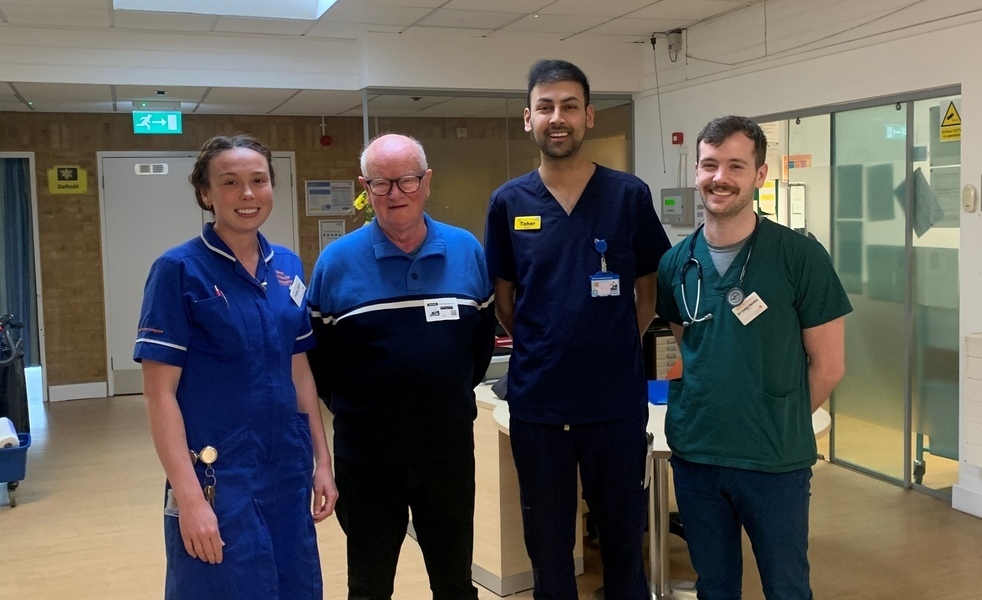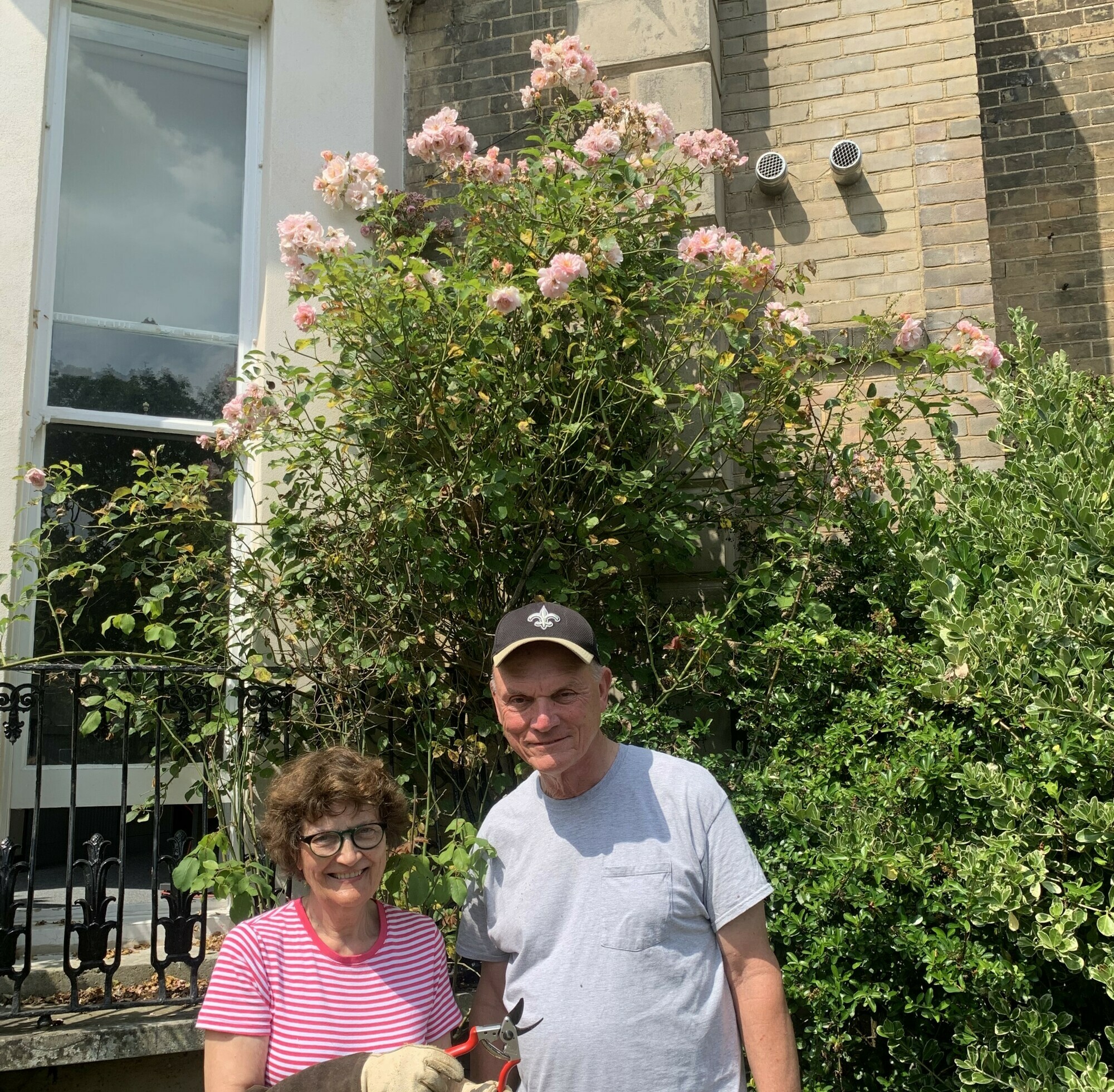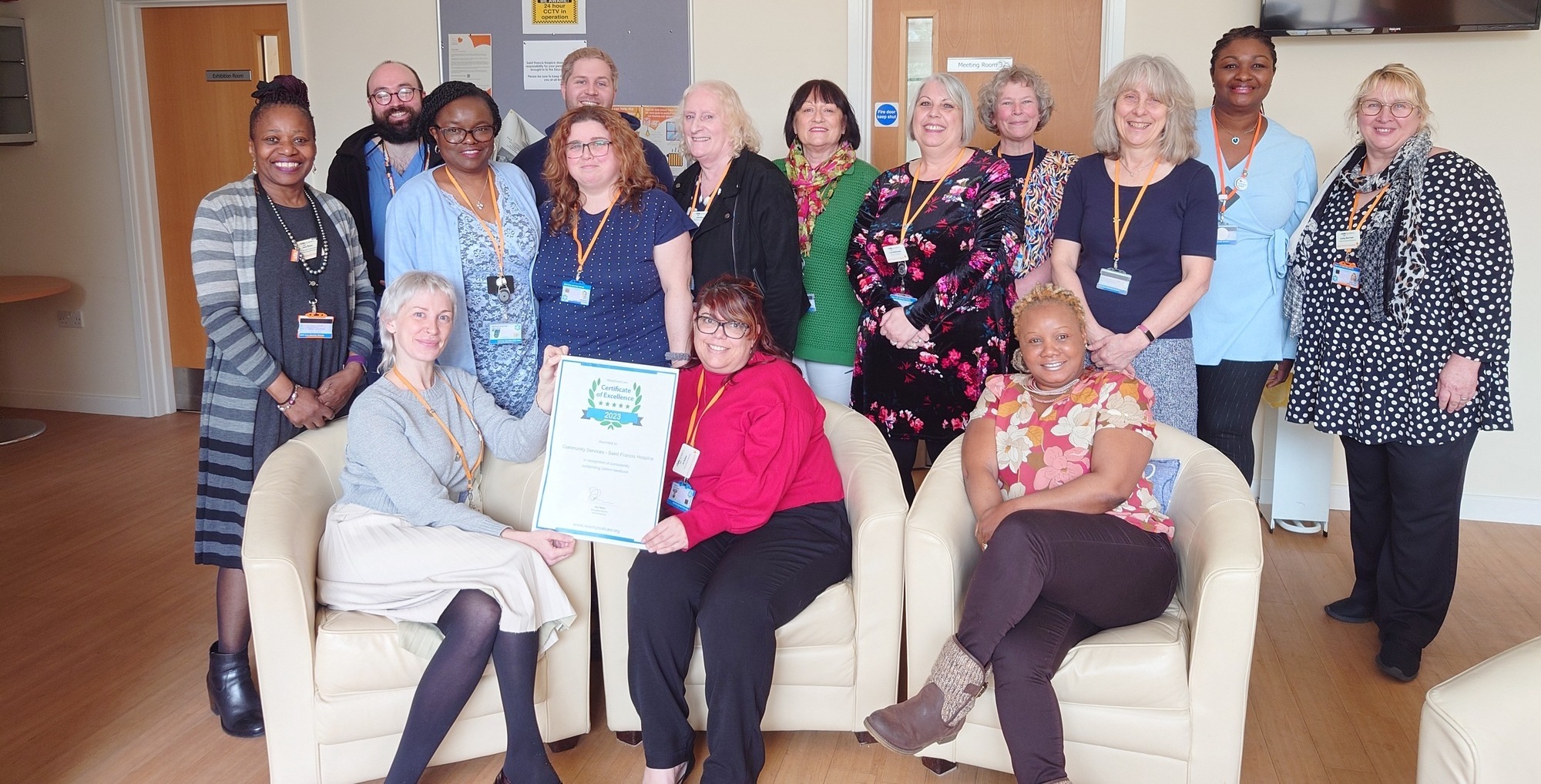Life before Saint Francis Hospice

As a District Nurse in 1972, Geoff Marchant remembers life before Saint Francis Hospice and how the opening of the hospice in 1984 transformed the care and support available for people with palliative and end-of-life care needs. This year the hospice celebrates its 40th birthday and as President of Havering Probus, the hospice is Geoff’s chosen charity.
When I was working as a District Nurse in 1972, specialised care for the terminally ill was not available. Not much could be done for people at home so they would end up in hospital. It wasn’t that hospitals didn’t give good care, but they were for acute and chronic care, so it wasn’t the right environment for someone at the end of their life. We also did not have the knowledge to care for people who were dying.
In those days, you could go to a home and because there was little you could do for a patient who was end of life, you felt you had let them down. But when Saint Francis Hospice opened in 1984 that all changed, and we had somewhere they could go to and get the care they needed.
The care and support of the hospice really complemented the care we were able to give. We used to meet with staff, and we worked well together. The introduction of syringe drivers made a huge difference too as it enabled people to manage their pain at home instead of having to go into hospital.
The hospice also delivered education and we came to the hospice for courses and to be updated on end-of-life care. This also gave us an opportunity to meet with staff and communications improved at the same time.
Around 20 years ago, I got to experience hospice care on a personal level when my dad was admitted to the ward. We were able to visit at any time and have the flexibility of care that hospitals are not able to provide.
The progress over the years has been tremendous as the hospice’s services to the community have developed and expanded. People will always need palliative and end-of-life care. The average age of our members is 82 and many of them have a connection with the hospice whether through family or friends. We need the hospice to be there and that is why it is important to us to support the hospice.
Charity of the Year
Your organisation can make a huge impact in supporting future patient care










